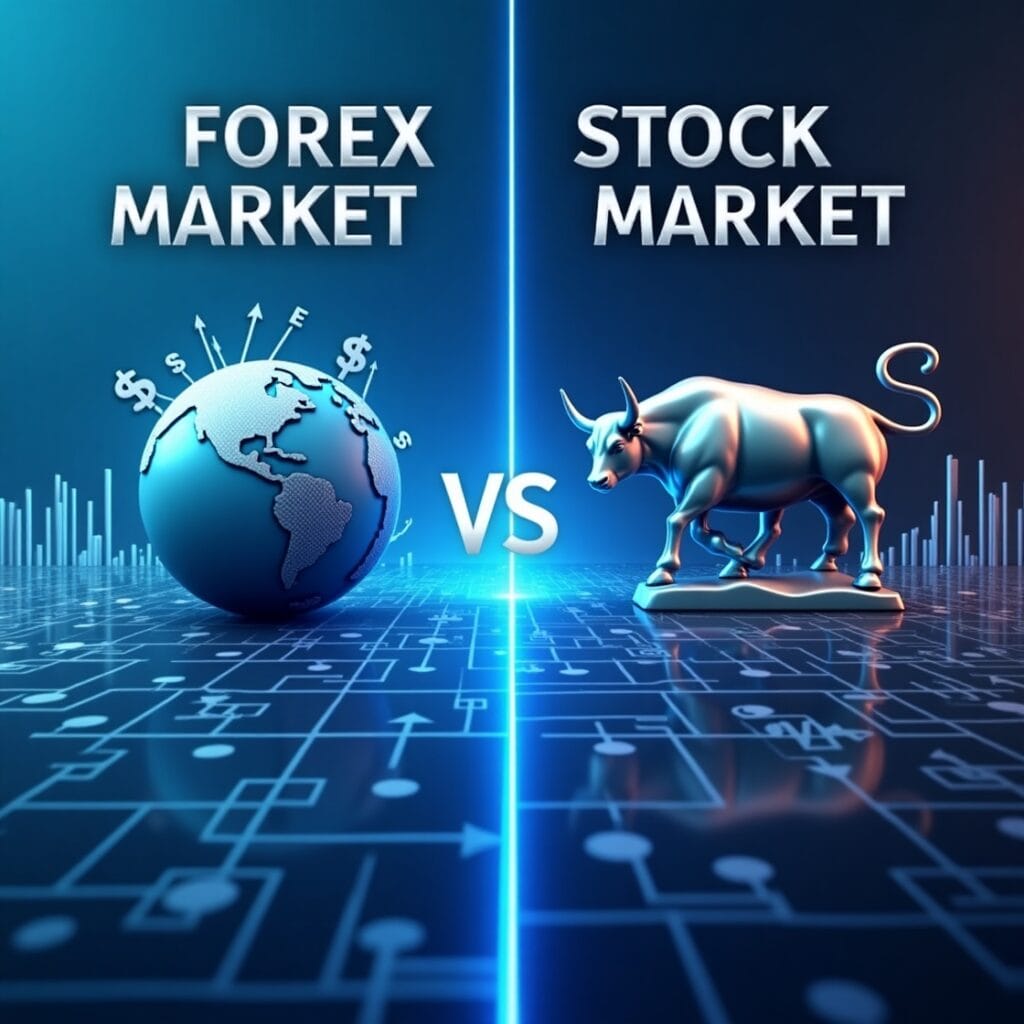As financial markets shift, the stock market is showing signs of weakness, while forex trading continues to attract attention. Investors and traders alike are reassessing their strategies, looking for markets that offer greater flexibility and potential. In today’s economic environment, forex appears to be a more appealing choice—here’s why.
1. Stock Market Struggles to Maintain Momentum
The stock market faces multiple headwinds, from economic slowdowns to inflation and rising interest rates. Many blue-chip stocks have lost value, leaving investors uncertain about the future. As a result, traders are exploring alternatives that offer more consistent opportunities.

2. Forex Adapts to Market Conditions
One major advantage of forex is its ability to generate opportunities regardless of market direction. Since forex involves trading currency pairs, when one currency weakens, another strengthens. This contrasts with stocks, which can experience extended periods of decline with fewer chances to profit.
3. Increased Volatility Opens Trading Opportunities
A slowing stock market often coincides with heightened volatility across all financial sectors. While long-term stock investors may see this as a risk, forex traders often view volatility as a way to capitalize on rapid price movements. Central bank decisions, economic reports, and global events all contribute to significant currency fluctuations—ideal conditions for skilled traders.
4. Liquidity Advantage in Forex
Forex is the most liquid financial market in the world, with daily trading volumes exceeding $7 trillion. Unlike stocks, where low liquidity can lead to price manipulation or execution delays, forex trades can be executed almost instantly, with minimal slippage. This high liquidity allows traders to enter and exit positions with ease.
5. Leverage Offers Greater Market Exposure
Forex trading typically provides access to higher leverage compared to stocks, allowing traders to control larger positions with less capital. While leverage increases both profit potential and risk, it makes forex a more attractive option for those looking to maximize returns without committing significant upfront investment.
6. Macroeconomic Events Shape Forex Trends
Unlike stocks, which depend on individual company performance, forex movements are driven by global economic factors like interest rates, inflation, and geopolitical events. In times of economic uncertainty, currency values shift significantly, creating new opportunities for traders who understand these macroeconomic trends.
7. Round-the-Clock Trading Flexibility
Unlike stock exchanges with fixed trading hours, the forex market operates 24 hours a day, five days a week. This offers traders from different time zones more flexibility, allowing them to trade whenever market conditions are favorable.
Final Thoughts
With the stock market experiencing slowdowns, forex stands out as a more dynamic and adaptable alternative. Its liquidity, 24-hour availability, and resilience to downturns make it appealing for traders seeking consistent opportunities. However, success in forex—like any form of trading—depends on strategy, risk management, and market awareness.







